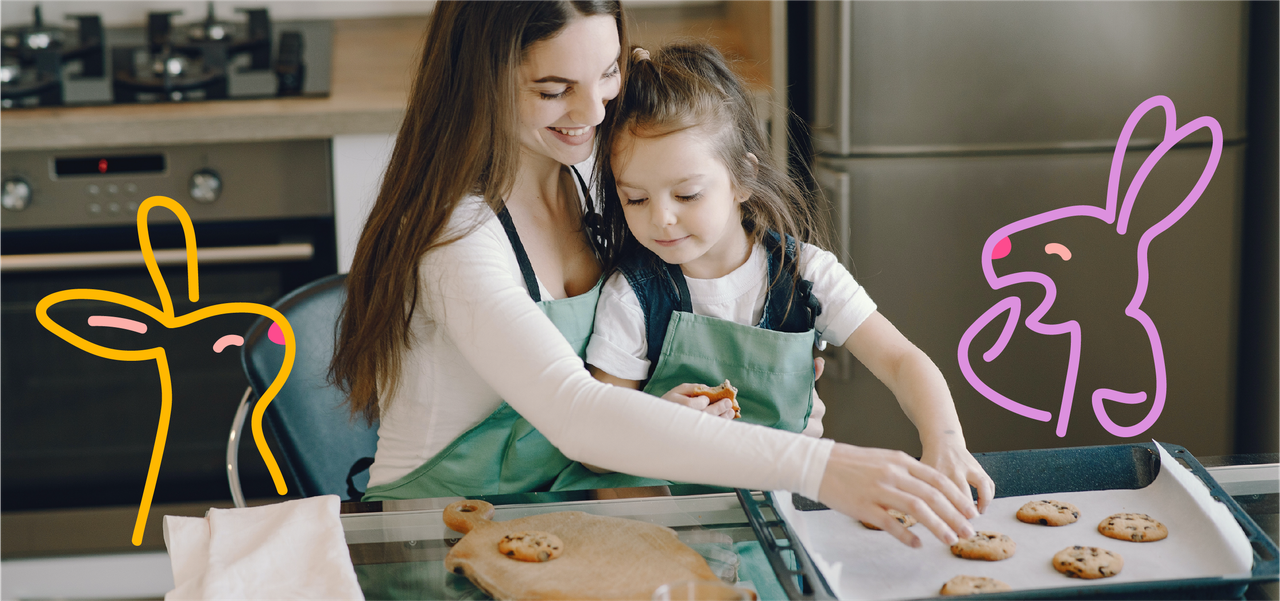
With child care centres back in full swing and schools opening up, it feels as though we are seeing the light at the end of the lockdown tunnel.
For many parents, this has been a time of reflection and taking stock of what’s important. Although stressful trying to juggle work and family life, many families have found that their bonds are stronger than ever. It’s hard to imagine life going back to normal, and we might even be asking ourselves if we want it to.
There have definitely been elements of isolation that we would rather forget (hello, toilet paper shortage) but there are most certainly parts of it that we might want to take with us to the next phase.
Family mealtimes
For many families this is the first time they have been able to enjoy three meals a day as a family. Pre-Corona, breakfast was rushed as everyone had places to be; lunch was usually eaten separately at home/work/child care/school; and children may have eaten dinner at 5pm while parents didn’t sit down to a meal until 7.30pm.
We’ve had a taste now of eating together more, and it’s something that many parents want to continue doing as much as is possible, even with revised work commitments.
Working from home
Depending on your job, you or other family members may have been able to work from home while in isolation with the children. Employers who had previously suggested that working from home wasn’t an option have had their eyes opened to new possibilities.
Many workers even suggest that they are more productive at home, with the ever elusive work/life balance allowing for more family time, zero commute, and no interruptions from colleagues in the kitchen.
Post lockdown, workers may feel more confident to suggest a continuation of their work from home, or at least the possibility of splitting their time between working in the office and at home.
Prioritising exercise
When we were only able to head outside for exercise, it encouraged us all to be more mindful of making it a priority. Those hours saved on commuting or shuttling children to activities was able to be spent on bike rides, jogs, dog walks or at-home gym sessions online.
Staying physically active helps to keep us healthy, so this should be on our to-do list even when things go back to ‘normal.’
A simplified schedule
Wasn’t it nice not having anywhere to be? No play dates, no soccer practice, no swimming lessons. While we all want our children to be social and physically active, it was nice to take a break from the relentless scheduling that many of us had found ourselves living in.
This has been time to take stock of what is important and what needs to be prioritised. Parents all over Australia will be asking themselves whether they need to be quite so regimented with sports, activities and social events even when we are ‘allowed’ to go to them.
New traditions
Are you one of the millions of Australians that has embarked on baking bread for the first time? Are you sitting around the fire pit each afternoon drinking hot chocolate and chatting? Are you taking a family walk in the early morning to start your day off right?
Whatever you’ve been doing that’s been working for your family, try to keep at least some elements of it if you can. These are the types of things that our children will remember about the pandemic in years to come.
Staying in touch
Why did we ever think that a text was enough to keep friendships and relationships going? All of a sudden we are enjoying video chats with family and friends from all over the world, and it’s making us feel more connected than ever despite the physical distance.
Many parents say they are going to continue making time for video calls or phone calls to catch up with loved ones. For your friends and relatives, seeing your child’s smiling face, even for a five minute virtual playdate is so meaningful.
Pitching in together
Many of our Toddle parents have shared that their children have really stepped up and wanted to help more around the house. Whether that’s a bit of dusting, helping to set the table, making their own sandwiches or folding washing - little ones do love to be helpful.
There’s no reason for this to stop, and it’s a great way to teach children about pitching in as a family to get the jobs done before making time to relax.
Conscious moments of gratitude
Children have probably never heard the term ‘essential workers’ until now, but this is a great opportunity to discuss how society works. If your children are old enough to understand, be sure to keep the conversations going about all of the doctors, nurses, delivery drivers, supermarket workers, and all the other jobs that keep our world working even when things go wrong.
Take time to discuss with your children all the reasons why we should be thankful for what we have and how lucky we are to have each other. Gratitude is a great habit for families to practice together, now more than ever.